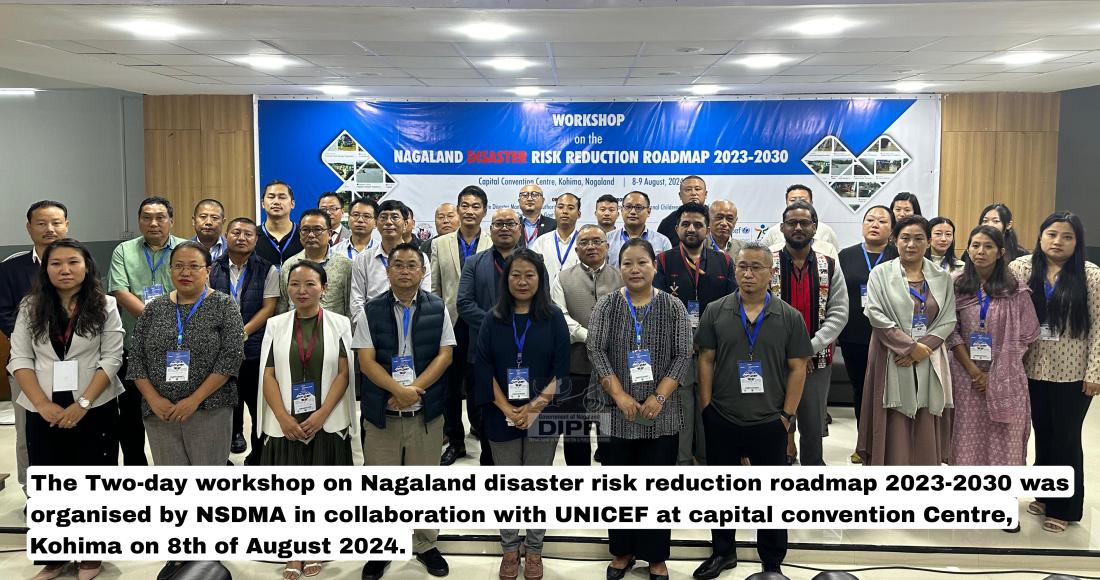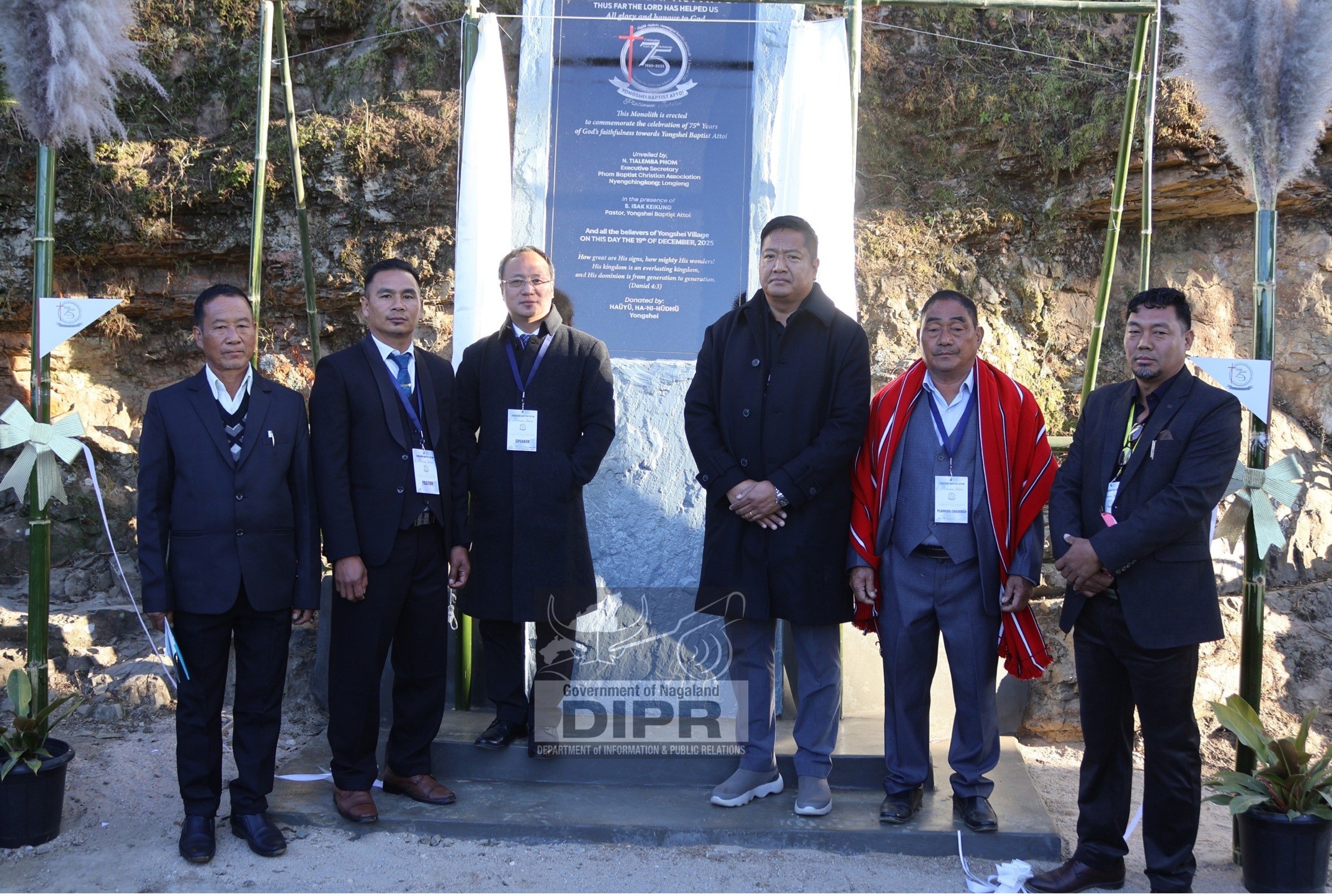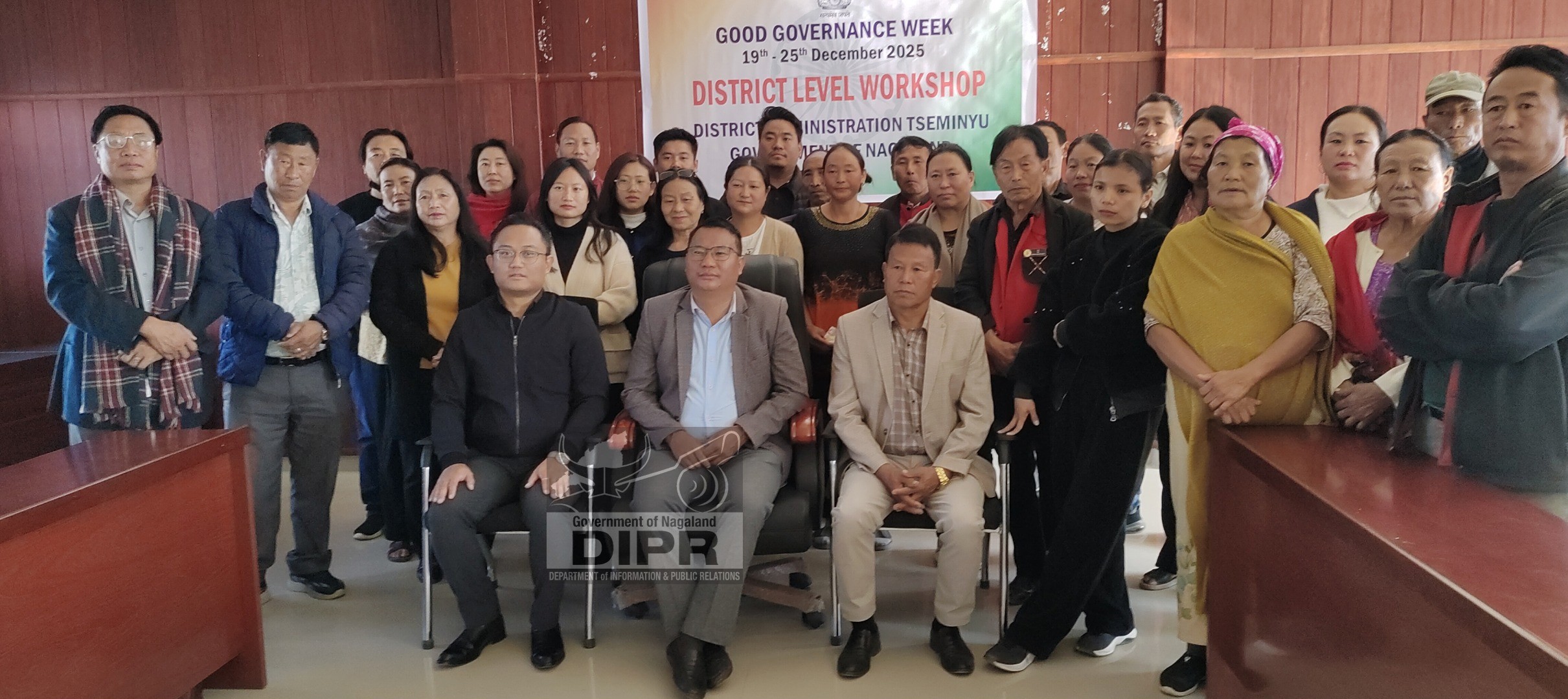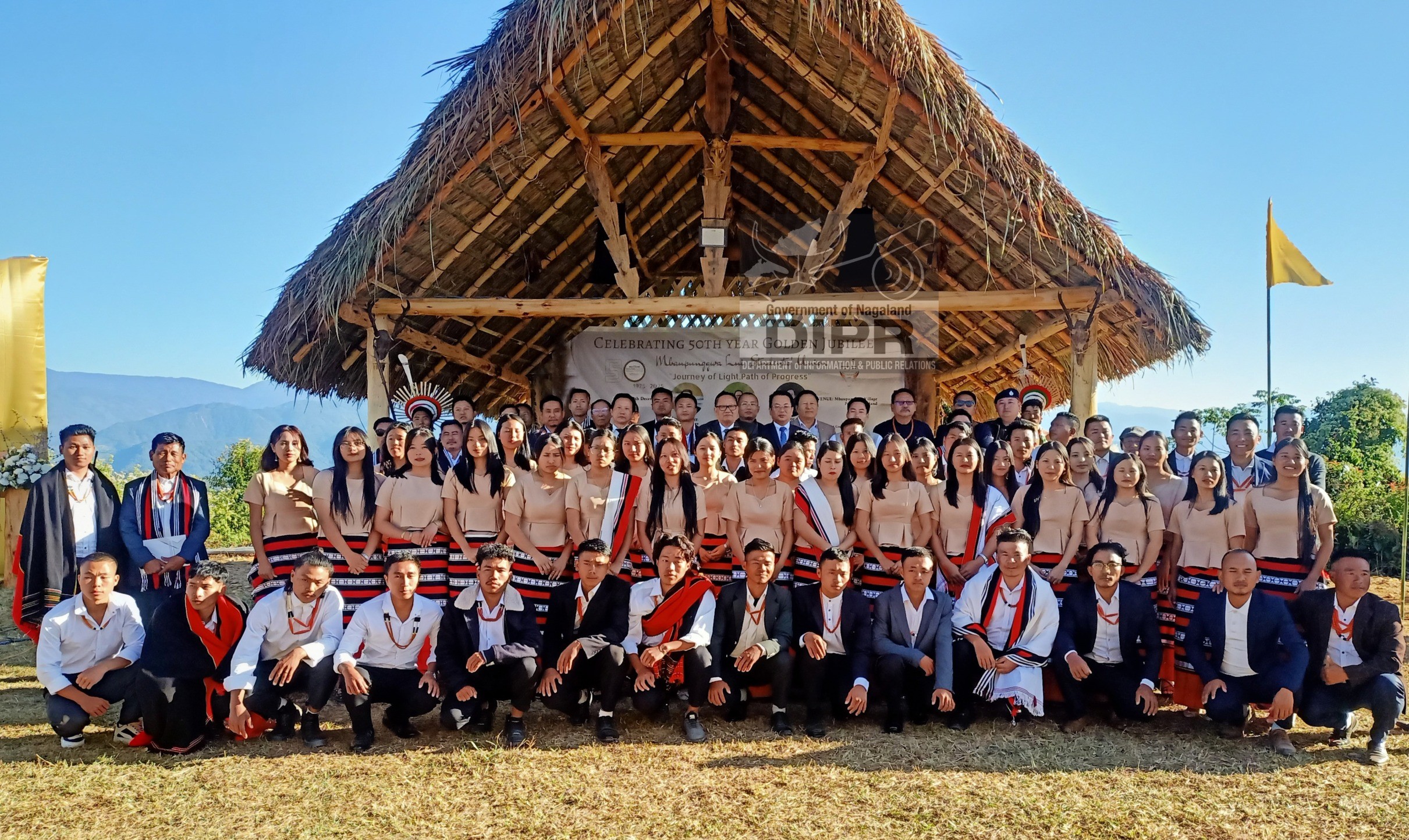The-two-day workshop on Nagaland Disaster Risk Reduction Roadmap (NDRR) 2023-2030, organised by the Nagaland State Disaster Management Authority (NSDMA) in collaboration with United Nations International Children’s Emergency Fund (UNICEF), commenced at Capital Convention Centre, Kohima on 8th of August 2024.
Advisor, New & Renewable Energy and NSDMA, Z. Nyusietho Nyuthe in his speech said that Nagaland is located in the most vulnerable seismic zone and the land is weak and exposed to multiple disaster risk such as prone landslides, flood, earthquake, forest fire and wind. He stated that the NSDMA under the leadership of Chief Minister and Chairman NSDMA, Neiphiu Rio has made Nagaland Disaster Risk Reduction Roadmap, with a hope that it will secure the future of Nagaland from such risks. He added that NDRR is a policy document designed to achieve long term resilient in the state from threat posed by climate and disaster risks with this strategic document, designed by NSDMA with the technical support of UNICEF, envisages strategic action plans for different stakeholders.
Nyuthe said that DRR actions under each Sendai Framework priority, defined collaboration from various stakeholders, and set attainable targets in alignment with national and global frameworks such as the Prime Minister's Ten Point Agenda, the Sendai Framework for Disaster Risk Reduction (SFDRR), and Sustainable Development Goals (SDGs) and with this workshop, led by NSDMA in collaboration with UNICEF, is an effort to explore the ways required for the progressive implementation of the roadmap in the coming days especially in understanding the relevance of resilient governance systems, efficient social sector services, livelihood resilience, emergency response systems, infrastructural resilience, and risk-informed and the roles of various stakeholders, including the government, academia, private sector, and civil society groups. And by securing sustained commitment of human and financial resources from all stakeholders, it aims to minimize disruptions caused by disasters and enhance the capacity to recover swiftly from any future hazards.
During the launch of the NDRR Roadmap, Nyuthe said it signifies a pivotal advancement towards a safer and more resilient Nagaland, underscoring the collective dedication of the people to strengthening preparedness for preserving our landscape and heritage from disaster risks and ensuring sustainable development and build a resilient Nagaland where every citizen can thrive without the fear of disasters.
Nyuthe encouraged all the participants to actively learn the art of result-oriented project proposal formulation methods and techniques, which have been designed exclusively considering Nagaland's topography, geomorphology and culture in mind.
Joint Chief Executive Officer NSDMA, Johnny Ruangmei in his welcome address speech mentioned that the workshop on Nagaland Disaster Risk Reduction Roadmap aims to provide practical guidance for stakeholders to take actions to minimize the impact of disaster in the state, reduce disaster risks, mitigate the impact of climate change and achieve sustainable development goals.
Ruangmei, mentioned the objectives of the two-day Workshop on Nagaland disaster Risk Reduction Roadmap such as:
- Develop baseline of disaster loss and damage from 2010-2020,
- Identify strategic opportunities for stakeholders (Government, Civil Society Organisations, Academic Institutions, Private Sector and UN Agencies) to collaborate for DRR actions.
- Set realistic short, medium and long term targets for stakeholders based on the baseline data in line with Prime Minister's Ten Point Agenda on DRR, SFDRR, SDGs and Paris Agreement commitments. This time frames for short term actions may be 0-2 years, 2-4 years for medium term actions, and 4-8 years or more for long term actions which are subjected to changes depending on many factors including changing needs, advances in technology etc,
- Mobilise long-term commitment of human and financial resources from the stakeholders.
Mukunda Upadhyay, senior consultant, DRR, UNICEF India and Rahul Dey, technical expert, UNICEF India are the two resources person for the two-day workshop on Nagaland disaster Risk Reduction Roadmap 2023-2030.
(Kazuhito Kibami, IA)





